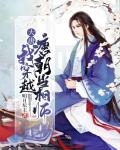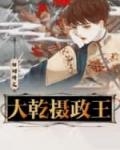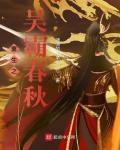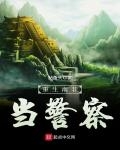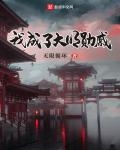Chapter 4 Ancient Classics
"White Tiger No. 0, the one that can fly?" Jin Yao suddenly remembered that in Qin's Moon, the three little ones flew to the mirage on the mechanical white tiger. He never expected that he would actually see the White Tiger No. 0 in Linzi.
"The White Tiger is the masterpiece of my Mo Bian lineage, the Vermillion Bird is the masterpiece of Deng Lingzi's lineage, and the Black Tortoise comes from Xiang Lizi's lineage. The Azure Dragon is the result of the combined efforts of the three lineages." Master Xiang introduced, pointing to the other two secret rooms, each of which contained a Vermillion Bird and a Black Tortoise mechanism.
"Where is Qinglong?" Jin Yao was most curious about Qinglong, the eldest of the four mechanical beasts of the Mohist school, because he had never appeared in the anime.
"You don't want to see Qinglong!" Master Xiang said lightly, and brought Jin Yao to the former Sutra Repository.
"What will happen if you see it?" Jin Yao asked more curiously.
"It's nothing. I'd better be more careful in my next life and hope that I won't see it again!" Mr. Xiang stroked his white beard and inserted the mechanical hand into the hole next to a stone door.
"Click, click, click~" There was a sound of gears turning, and then the stone door slowly opened upwards, revealing a towering side room.
"In the Mo Bian lineage, there are only you and me left in my hands. Before you came back, I thought that the Qi Mo lineage would be handed over to whoever comes back." Master Xiang took Jin Yao's wrist and walked into the library, bowing to the bookshelves in the room.
Jin Yao looked around and saw many names marked on the bookshelves, "Light and Shadow", "Universe: Up, Down, Left, Right, Front, and Back", "Universe: Ancient, Present, and Future", "Heaven: Sun, Moon, and Stars"... The bookshelves on the left were all empty.
On the right, "Lightning Steps", "One Kill in Ten Steps", "Sword of Yue Girl", "Swordsmanship of Mozi", "Thor's Hammer", "The Best of the Best", "Darkness", "Poison", "Music"... are still empty.
Right in front of me are "Mozi", "The Book of Changes ...Economy", "Economy in Burials", "Against Music", "Against Offensive", "Against Fatalism", "Against Confucianism", "The Book of Poetry", "Preparation for Defense"... Fortunately, all of them are on this bookshelf.
But Jin Yao was a little confused. As far as he could remember, the Mohist doctrines only had ten major principles: two festivals, two virtues, three non-principles, understanding ghosts, heavenly will, and universal love. He had never heard of non-Confucianism, defense, and justice.
When the stone door leading to the Sutra Repository closed, a row of bookshelves appeared, also fully stocked with works by hundreds of philosophers, including "New Preface", "Shi Zi", "Yan Zi Chunqiu", "Guan Zi", "Shang Jun Shu", "Shen Zi", "Shen Zi", etc.
Jin Yao also guessed the relationship between the layout of these bookshelves. On the left side are Mohist mechanical engineering and epistemology, on the right side are Mohist martial arts, in front are Mohist scriptures, and behind are the various schools of thought collected by Mohist.
Retracting his gaze, Jin Yao was shocked for the first time by the foundation of the Mohist school. How glorious the Mohist school would be in its heyday. It was already remarkable for the noble families of this era to have a few volumes of scriptures passed down from generation to generation. Looking at the Mohist Scripture Pavilion, there were at least more than 3,000 books, if not 100,000. It can be seen how powerful the Mohist school was back then.
Thinking about what Master Xiang said, when the Mobian school was passed on to them, there were only him and Master Xiang left. How terrifying the changes in the world are.
"The martial arts and scriptures that your master taught you have actually been edited and do not contain the core of Mohism. These are the real core of Mohism!" Master Xiang walked to the bookshelf in front, took down a volume of ancient books and handed it to Jin Yao.
Jin Yao took a closer look at "Economy - Part 1", opened it and read it carefully, only to find that he recognized many of the chapters, which were also what they had learned over the years, but there was a difference. This scroll of scripture had many more sentences and words, and these words and sentences were the key. No wonder he always felt that it lacked a core and was very scattered when he first started learning it, it turned out that the key words and phrases were hidden.
"Do you know why there are 100 schools of thought?" Master Xiang did not interrupt Jin Yao when he was reading the scriptures, but watched him silently, and then asked.
Jin Yao closed the scripture and shook his head. He knew about the various schools of thought, but that was all he knew. He had no idea how to become one of them, let alone understand the standards and thresholds for becoming one.
"Each of the hundreds of schools of thought has its own core principles, or at least one scripture as its foundation. But it is so difficult to have one scripture and one book. Even the Mohist school has only one scripture called the Mohist Classic." Mr. Xiang sighed.
Although the Central Plains is known for its civilization, there are very few that can truly be defined as classics. To date, there are only a few works, including the Taoist "Tao Te Ching", the Zhou Dynasty's "Book of Changes", the "Book of Songs" collected by Confucianists and collected by royal families of various countries, the "Book of Filial Piety" compiled by Confucianists themselves, and the Mohist "Mojing".
"How is sutra defined?" Jin Yao was very curious. The ancients seemed to have a very strict definition of sutra. It was not as simple as the later generations' evaluation, where they would casually list a book as a sutra. Especially after Buddhism was introduced into the Central Plains, the word sutra became ubiquitous, and there were countless "Diamond Sutra" and "Emperor Amitabha Sutra".
"When it comes to the classics, we have to start with the units of measurement. Do you know how many units of measurement we have?" Mr. Xiang asked back.
"Tens, hundreds, thousands, tens of thousands, hundreds of thousands, millions, tens of millions, hundreds of billions, trillions, trillions, trillions..." Jin Yao said without thinking. The numbers above trillion are too large, and when it reaches trillion, he only remembers G in the West. As for the explanation of G, he is not clear about it.
"Ten thousand is called trillion, trillion is called jing, jing is called gai, gai is called zi, zi is called rang, rang is called gou, gou is called jian, jian is called zheng, zheng is called zai, zai is called ji, and after ji is infinity, so it is called wuji!" Mr. Xiang helped Jin Yao add the measurement units after trillion.
"So, Jing is equivalent to Jing?" Jin Yao understood a little, but still didn't quite understand.
"Well, 'Jing' is equivalent to 'Jing'. Each sutra represents the ultimate of a path, and can spawn countless schools of thought and books, hence the name sutra. Each sutra is infinitely vast, so there is a saying before the white-shou sutra volume, because even if a person studies from youth to old age, he cannot learn a complete sutra!" Mr. Xiang nodded and continued to explain.
Jin Yao was really shocked. It is said that the ancients were very particular and precise in the use of words, but now it seems that they are extremely precise. Whether it is the "Tao Te Ching", "Book of Songs", "Book of Changes" or "Mojing" and "Book of Filial Piety", they all represent an existence that can be derived infinitely.
The real name of "Tao Te Ching" is "De Dao Jing", which is the sum of virtue and morality. "The Book of Songs" is the ancestor of poetry, songs, prose, legends and novels. "The Book of Changes" is just like terrifying, claiming that everything is easy, but nothing is easy. "Mo Jing" is one of the three major philosophical schools in ancient times, the origin of science, and the starting point of epistemology.

